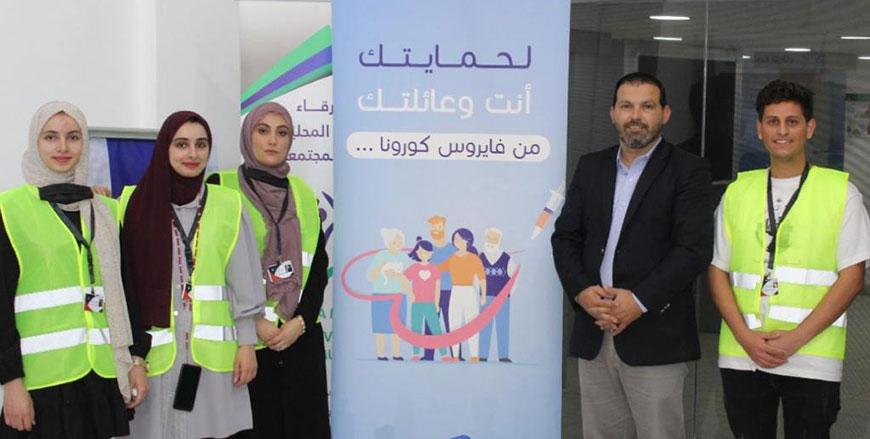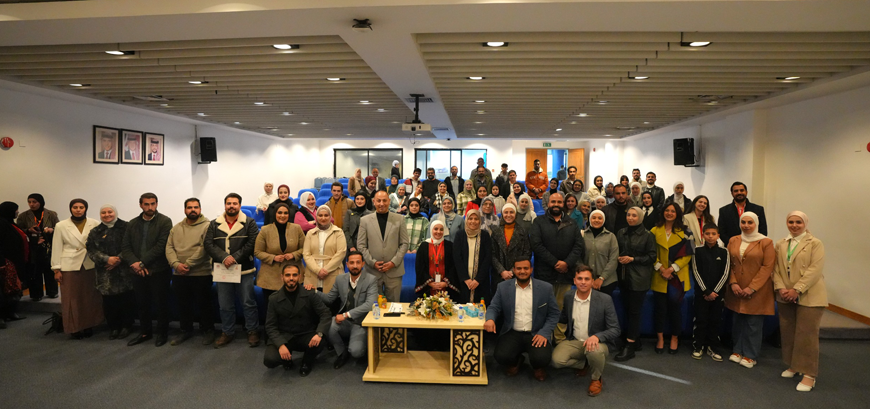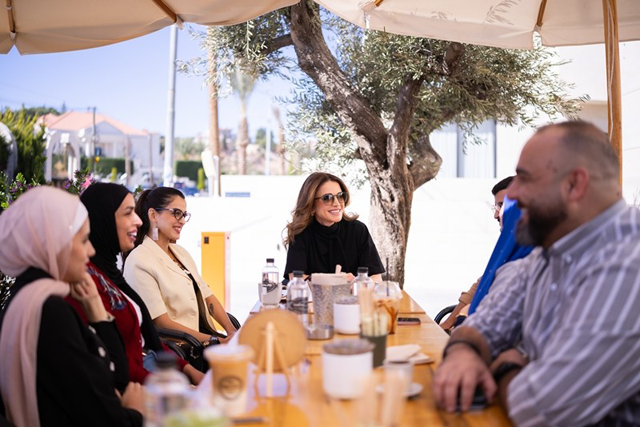You are here
‘Young Cities’ project helps Zarqa youth cooperate with authorities to address community issues
Jan 20,2022 - Last updated at Jan 20,2022

Volunteers who are part of the 'Young Cities' project pose for a group photo (Photo courtesy of WANA Institute)
AMMAN — As part of “Young Cities”, a global programme that connects young people to local government, three youth-led projects in Zarqa received mentorship to develop and implement initiatives that respond to the needs of their communities.
The project works with youth as well as community members and municipal leaders to enhance the role of youth to actively address local-level issues, according to a statement from the West Asia-North Africa (WANA) Institute.
The “Young Cities” project was introduced in Zarqa in September 2021 to encourage the development of youth-led solutions to community challenges pertaining to misinformation, hate, polarisation, extremism and violence.
The Norwegian Ministry of Foreign Affairs, the Institute for Strategic Dialogue (ISD), in partnership with the WANA Institute, coordinated to provide training workshops, seed funding and mentorship to 21 young people, giving three youth-led projects in Zarqa the tools to develop and implement their initiatives. Upon receiving the training, each of the three youth groups chose to address pressing issues that contribute to polarisation, violence and misinformation in their local communities.
The three projects are: The Zarqi Initiative, whose slogan is "stay healthy", focusses on misinformation and fear surrounding the COVID-19 vaccine; the Design Initiative addresses the negative effects of cyberbullying, and the third project, "We Are Human", raises awareness about the negative stereotypes and attitudes linked to people with disabilities.
Ghadeer Faraj, who is a member of the "We Are Human" initiative, said: “We believe in the concept of inclusion of people with disabilities, so we started an initiative linked to empowering people with disabilities in the community through cultural and recreational activities to correct the false information. We have obtained support from 'Young Cities' and the WANA Institute to conduct awareness raising sessions, in addition to a number of interactive puppet performances”.
Regarding the Zarqi Initiative, Asma Adawi, a team member, said: “We held awareness sessions which were attended by men, women, youth and children. We also posted on social media a number of videos of influential people who provided a proper explanation of the vaccine's safety and efficacy, as they continue to be a public concern”.
As for the Design initiative, Lama Samara, a team member, said: “Enforcing policies against cyberbullying is essential but it is as important to educate youth, caregivers, teachers and parents who are in a good position to recognise potential signs of cyberbullying. It is critical that they report the potential of cyberbullying that interferes and disrupts the victim’s life. Everyone should know what constitutes cyberbullying and understand its consequences.”
Related Articles
AMMAN — Under the Inclusive Security and Resilient Youth ‘Mirsah’ Project activities, Mercy Corps Jordan celebrated the launch of youth-led
AMMAN — Jordanian youth-led green initiatives are growing in number, though more inclusion, green skills and competencies are required for a













